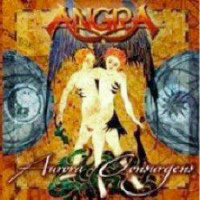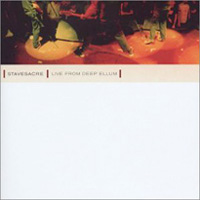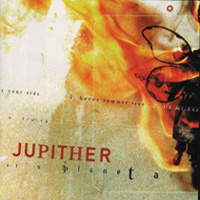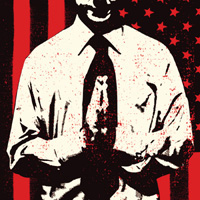 Angra
Angra
Aurora Consurgens (SPV)
An interview with guitarist Rafael Bittencourt
By Tim Den
When last year’s Temple of Shadows failed to live up to the standard set by Rebirth, I was a bit disappointed, but overall not too upset. Cuz even though Temple of Shadows was too labyrinthine to be memorable – I still can’t recall any of the songs offhand except opener “Spread Your Fire” – its scope and ambition still qualified it a strong album with many fine attributes. Aurora Consurgens, the band’s sixth full-length and the focus of their 15th anniversary celebration, apparently felt the same way I did, cuz it scales back the mosaic songwriting approach just a tad to make room for catchy hooks. As always, every Angra album must have a stunning opener, and “The Course of Nature” is no different. Dazzling displays of power metal technicality on top of grandiose vocal lines. Superb. The rest of the album doesn’t slack off either, as “The Voice Commanding You,” “Salvation: Suicide,” and “Scream Your Heart Out” all offer ridiculous examples of musicianship and songwriting. Just the right amount of variation on “Breaking Ties” (a lighthearted waltz), “So Near So Far” (Middle Eastern chord progressions), and closer “Abandoned Fate” (acoustic ballad) help add to the album’s depth and colors, resulting in a record that takes its two predecessor’s strong points and melds them into one. My favorite moments? “Passing By”‘s crushing main riff, the harmonics on “Ego Painted Grey,” and the ludicrous busyness of “Salvation: Suicide”‘s first minute
I honestly cannot think of a better power metal band today than Angra. Aurora Consurgens, much like most of the band’s back catalog, is the best work the genre has to offer. You can’t call yourself a metalhead without being an Angra fan.
What was the Brazilian metal scene like when you first started?
We started in the early ’90s, when grunge was becoming popular, and not many labels wanted to bet on heavy metal. However, there were still places where metal was big. The power metal scene in Europe and the prog metal scene in America, for instance. Bands like Dream Theater and Fates Warning were still doing well and had supportive audiences. So when we started, we thought to combine both genres and create something unique, and it worked.
Was this around the time when Sepultura were becoming huge?
Yes. When we first got together, Sepultura had just moved to the U.S. Soon they found success with Roadrunner, and eventually Epic Records.
I must admit that I was quite surprised to find out Angra were from Brazil when I heard Angels Cry in ’96. I had always associated Brazilian metal with death, thrash, hardcore, and punk like Sepultura and Ratos De Porão.
Yeah, but I would say that the power metal scene here is bigger than the death/thrash/hardcore scenes now. Those genres have mostly stayed underground, whereas certain parts of our catalog and career have crossed over into the mainstream.
Would you say that you guys and Sepultura are kind of Brazilian metal’s “big names?”
I think so, because Brazilian fans are very proud and loyal to their heritage, so they are always championing us.
 Even though you guys are very successful around the world, you haven’t really “invaded” the U.S. Why do you think that is?
Even though you guys are very successful around the world, you haven’t really “invaded” the U.S. Why do you think that is?
The U.S. scene can sometimes be closed off to foreign bands. They might be interested in British bands or Australian bands sometimes, but for the most part, they don’t actively look elsewhere for music. Plus, we haven’t changed our musical approach in order to be more successful in America, we’ve just stayed straight ahead in pursuing what we love.
You’re now on your third album with the “new” line-up. Personally, I think you guys have only gotten stronger with time. Do you think most of your fans have accepted that this is who Angra are? Or do you still get people saying “oh they were better with the old singer.”
For the most part, our fans are very happy with every album that we put out. Of course, there are a few who say that they like the old vocalist better, but I respect everyone’s opinion. The only thing I believe is that we have constantly challenged ourselves and progressed. Every album has its own personality. Our only constant is that we never stay constant. Sometimes someone will say “the new album doesn’t sound like Angra at all,” but someone else will say “it does sound like Angra because every Angra album sounds different.”
When you guys perform live, do you concentrate more on the new material, or do you play from your entire catalog?
Well, since it’s our 15th anniversary this year, we’re playing a wide selection. We know that we have fans who’ve stayed with us throughout the years, so we have to respect that. There are certain songs that have become “classics” since they were first released – like “Carry On” or even the Kate Bush cover of “Wuthering Heights” – to the point that even non-metal fans who don’t know the name Angra will recognize the songs, so we have to make sure those are in the set list.
Can Edu (Falaschi, vocalist) sing all of the old stuff? Was such a qualification one of the conditions when you guys auditioned new members back in 2000?
Edu can sing most of the old stuff, but he’s in a different range than André (Matos, ex-vocalist) so we have to change some of the melodies. It’s really no big deal, a lot of bands do it. We don’t want him to ruin his vocal cords. (laughs) When we were looking for a new vocalist, we purposely wanted someone in a different range, because I was tired of hearing the super high vocals all the time. Both Edu and André are great singers, but their approach is different. I think the fans understand that with a line-up change comes a new identity. We’re not changing the old stuff, just reinterpreting it.
Would you say that the split with André happened because you were tired of his voice?
No, not at all. Musically, everyone in the band got along great. There were no problem there. It was everything else. There were disagreements over how the business aspect should be run, as well as personal differences between members. But it happened very naturally: The differences grew and grew until the group split into two parties.
What’s the relationship like between you guys and the former members?
There’s not really a relationship. (laughs) We don’t really communicate. Of course, the metal scene in Brazil is pretty small, so we have a lot of common friends and business partners. We hear from time to time how their band is doing, and I personally am always curious to hear their progress. They’re great talents – I would never deny that – and I certainly hope that they do well. But we don’t have an active relationship.
What are your plans for the coming year?
There are a lot of cities in Brazil that are great for us, so we will just be touring here until Christmas. We just finished playing Asia – Japan, Taiwan, Hong Kong – so early next year we’ll go to Europe. There are no plans for American dates yet, but who knows? I would, of course, like to come over.
(www.spvusa.com)



